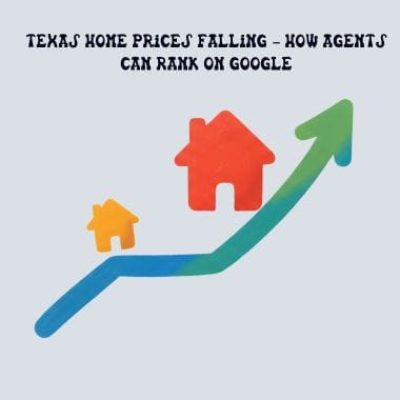Is your fantastic property listing being met with silence? You know your rental or building is a great opportunity, so why can’t the right people find it?
The digital world runs on keywords the specific phrases your future residents and investors use to search.
By optimizing your content with these terms, you place a direct sign to your door. Effective SEO ensures you’re not just seen, but found by the perfect someone at the exact right time.
Ready to attract serious leads? Start with this essential vocabulary of 200 key phrases for real estate success.
You can choose the option that best fits your target audience:If you’re unsure which style works best, seoagency1 can help you pick the right tone and make sure your message connects with your audience.
Real Estate SEO Basics: A Modern Guide
Search Engine Optimization, or SEO, is the practice of making your website attractive to search engines like Google or bing. For real estate professionals, it’s about ensuring your listings and services appear when potential clients are searching online.
A strong SEO strategy helps you get found by more people without paying for ads, generating valuable leads around the clock.
How to Understand SEO Keywords for Better Visibility
Keywords are the words and phrases people type into a search box. They are the direct link between a user’s need and the content on your website. For instance, a person might search for “family homes in [usa,texas,florida]” or “what is my house worth.”
By using these exact phrases naturally in your website’s text, titles, and descriptions, you signal to Google that your page is a relevant answer to that query.
Why a Strong SEO Strategy is Essential for Your Real Estate Business
In today’s digital world, the first place people look for a home or an agent is online. If your website doesn’t appear in those first few search results, you are virtually invisible to a huge audience.
A powerful SEO plan builds a steady stream of organic traffic, which means free and highly targeted visitors to your site.
This builds your brand’s authority, establishes trust, and ultimately, drives more sales and listings than relying on traditional marketing alone. It is a long-term investment that continues to pay off.
Using Keyword Research to Attract Potential Buyers and Sellers
If you want to target local business clients, then use city names, areas, and zip codes in your keywords.
Local Keywords:
- Real estate company in USA
- Luxury home for sale in Texas
Transactional keywords are used when buyers or sellers are ready to take real action, like buying or selling a property.
Transactional Keywords:
- Sale cheap homes in USA
- Buy affordable house in Los Angeles
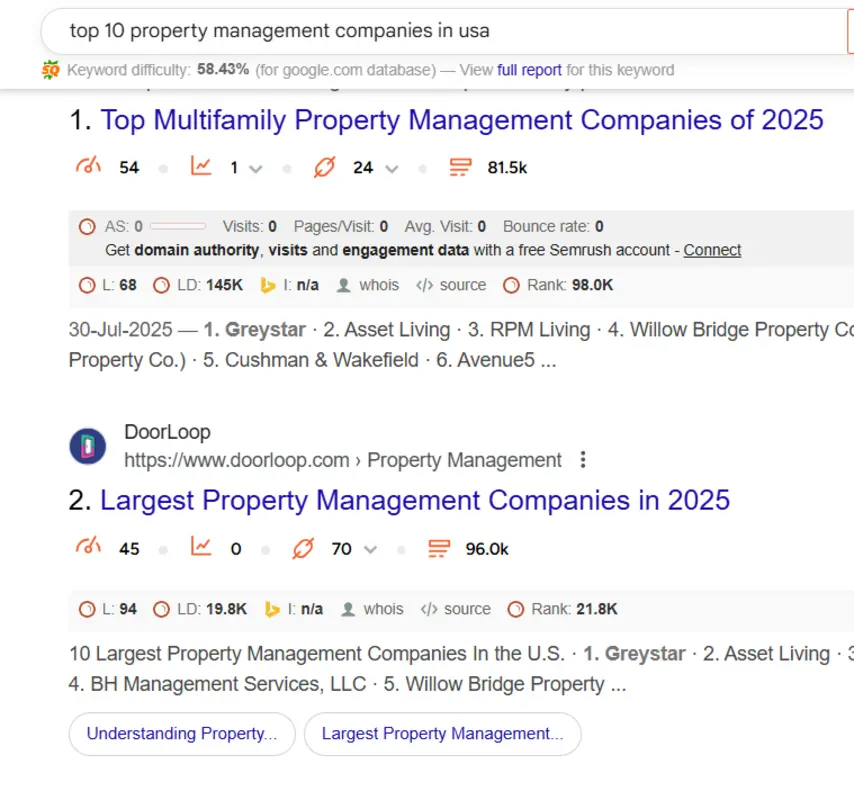
How to Implement Keywords on Your Real Estate Website
Once you have a list of relevant phrases, it’s time to use them wisely. Here’s how to integrate them naturally:
- Page Titles: Include your main keyword near the beginning. (e.g., “Modern Condos for Sale in Seattle |property management real usa”)
- Headings: Use subheadings (H2, H3) to break up text and include related terms.
- Content: Write helpful, lengthy descriptions for your property listings and blog posts, using keywords in a natural, conversational way.
- Image Alt Text: Describe your images using keywords so they appear in image searches. (e.g., alt=”luxury kitchen in downtown Austin condo”)
ctagary: 1property management company
- property management company
- property manager [City Name]
- HOA management company [City Name]
- rental property management near me
- residential property management [City Name]
- condo management company [City Name]
- florida: vacation rental management Orlando / Miami / Destin
- florida: condo property management Miami
- texas: HOA management company Austin / Dallas
- texas: residential property manager Houston
Category 2: Informational & Problem-Solving Searches
These are current landlords who are experiencing a pain point and are looking for a solution.
- how to manage a rental property
- tenant screening services
- how to find tenants for my rental
- how to handle eviction in [Florida/Texas]
- property maintenance services
- how to set the right rent price
- landlord tenant laws [Florida/Texas]
- florida: how to manage a vacation rental
- florida: hurricane preparedness for rental property
- texas: how to handle security deposits in Texas
- texas: landlord rights in Texas
Category 3: Branded + Review Searches
These are users who may have heard of a company and are now vetting them.
- [Your Company Name] reviews
- best property management software
- best property management company near me
- top-rated property manager [City Name]
- florida: best vacation rental management companies in Florida
- texas: top HOA management companies in Dallas
Category 4: Location-Specific & Long-Tail Keywords (High Intent)
These are very specific searches that indicate a user is ready to hire.
- property management for single-family homes [City Name]
- multi-family property management [City Name]
- rental property accounting services
- HOA management fees
- florida: Airbnb management Miami Beach
- florida: property management for snowbirds
- florida: flood insurance for landlords Florida
- texas: property management for investment properties Austin
- texas: how to manage a rental property in another state
- texas: lease enforcement services Texas
Summary of State-Specific Considerations to Target:
- For Florida:
- Vacation & Seasonal Focus: Short-term rental management, vacation rental management, Airbnb management, seasonal rental pricing.
- Environment: Hurricane preparedness, flood insurance, wind mitigation inspection.
- Property Types: Condo management (especially in South Florida), beachfront property management.
- For Texas:
- Market & Legal Focus: Strong tenant laws, lease enforcement, security deposit laws, landlord rights.
- Geographic Specificity: Target major metros (Dallas, Houston, Austin, San Antonio) and their suburbs explicitly, as the markets vary greatly.
- Property Types: Strong HOA management market, single-family investment properties.
How to Use These Keywords:
- Website Pages: Create dedicated service pages for key cities
- Content Blog: Write articles answering informational queries
- Google Business Profile: Include these keywords in your business title, description, and posts.if you want info this topic ” Why My Business Not Showing on Google”
| Feature | Organic SEO | Paid Ads (PPC) |
|---|---|---|
| Cost | Requires time and effort | Pay per click, ongoing |
| Results Timeline | Slow, often 3-6+ months | Immediate |
| Long-Term Value | High, content lasts for years | None, stops when funding stops |
| Trust & Credibility | Higher, seen as a natural result | Lower, seen as an advertisement |
| Best Use Case | Building a lasting online presence | Quick promotions for new listings |
Actionable Steps to Improve Your Real Estate SEO Today
- Start a Local Blog: Write posts about community events, market updates, and home buying tips. This creates fresh content and uses local keywords.
Leverage Local Keywords to Dominate Nearby Searches
Most real estate is hyper-local. People aren’t just looking for a house; they’re looking for a house in a specific area.
- Name Your City and Neighborhood: Mention these names naturally throughout your website, blog posts, and listings.
- Create Location-Specific Pages: Have a dedicated page for each major neighborhood you serve. Talk about local parks, market trends, community events, and school rankings on that page.
- Use “Near Me” Language: Many searches now include phrases like “realtor near me” or “homes for sale near [Landmark].” Ensure your business name, address, and phone number (NAP) are consistent everywhere online.
- Optimize for Mobile: Ensure your website loads quickly and looks perfect on phones, as most property searches happen on mobile devices.
- Get Local Backlinks: Ask reputable local businesses (like cafes or shops) to link to your website from theirs. This tells Google you are a legitimate local entity.
How to Understand Your Target Audience for Better Keywords
Before you type a single word into a keyword tool, the most important step is understanding the people you want to reach
- Think like a customer: What words or phrases would you use to find your own product or service? Ask friends or family for their input.
- Listen on social media: Join online groups or forums related to your topic. Notice the specific language and problems people discuss.
- Check your website analytics: See what search terms visitors are already using to find your site. This reveals their true intent.
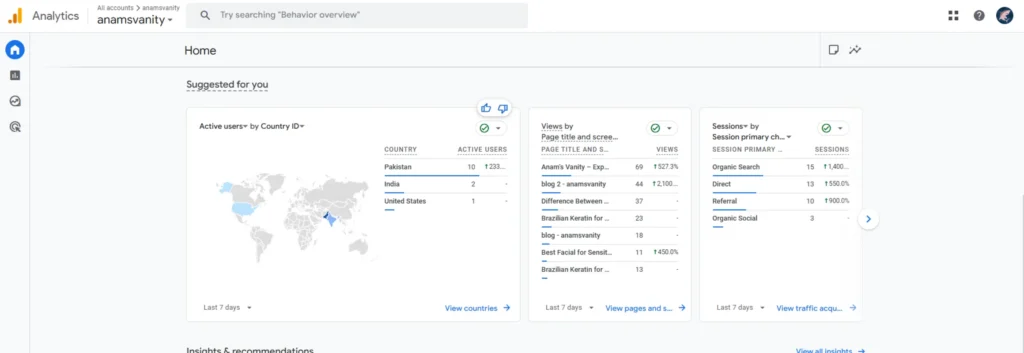
What Are Long-Tail Keywords Why Matter?
Short, broad keywords like “real estate” are highly competitive and difficult to rank for. A smarter approach is to focus on long-tail keywords. These are longer, more specific phrases that visitors use when they are closer to making a decision.
For example, instead of “broad keyword,” they prefer a long-tail phrase would be “best house for rent in florida .” While fewer people search for these, they offer huge advantages:
- Less competition: Easier to rank higher in search results.
- Higher conversion rates: The searcher knows exactly what they want.
- Matches user intent: You can create content that perfectly answers their query.
Balancing Search Volume and Competition for Success
What is Search Volume?
Search volume shows how many times a keyword is searched in a month.
If a keyword has 10,000 searches, it means around 10,000 people type it every month.
What is Keyword Difficulty (KD)?
Keyword difficulty tells us how hard it is to rank a keyword on Google.
It is scored from 0 to 100.
- Higher numbers (80–100) mean the keyword is very hard and usually taken by big sites like Zillow or Realtor.com.
- Lower numbers mean easier chances to rank.
A common challenge is finding keywords that people are actually searching for but aren’t impossible to rank for. You need to find the sweet spot.

Research Keywords for a Specific Outcome
To find the right balance, use free tools like Google Keyword Planner or Google Trends. These tools show you how many people search for a term each month (search volume) and how hard it would be to get on the first page (competition).
- Start by entering a broad topic related to your business.
- Look for keyword suggestions that have a decent search volume but low competition.
- Always prioritize relevance. A keyword is only good if it connects to what you truly offer.
Actionable Tips for Effective Keyword Selection
Here are some quick, actionable steps to improve your keyword strategy today:
- Use question keywords: Target phrases that start with “how,” “what,” “why,” or “best.” For example, “how to choose a beginner camera.”
- Include location: If you serve a local area, add your city or region. For example, “plumber in Denver.”
- Analyze the top results: Type your chosen keyword into Google. Look at the websites that rank #1. Can you create content that is more helpful or detailed than theirs? If yes, it’s a good keyword to target.
How to Optimize Property Listings to Attract Serious Buyers
Your property descriptions need to be compelling and clear. A well-optimized listing gets more views and sells faster.
- Craft a compelling headline: Don’t just list the address. Use enticing language like “Spacious Family Home with Renovated Kitchen in [Neighborhood].”
- Describe features and benefits: Go beyond “hardwood floors.” Explain the benefit: “Enjoy easy-to-clean hardwood floors throughout the main living area, perfect for busy families.“
- Include key information naturally: Weave important details like the number of bedrooms, bathrooms, square footage, and nearby amenities into flowing sentences.
Content Structure
- H2: How to Learn from Other Real Estate Agents for Better Results
- H3: Finding Your Main Business Rivals
- H3: What to Look For on Their Websites
- H3: Using a Keyword Tool for Insights
- Table: Pros and Cons of Watching Your Competitors
- H2: Turning Your Research into a Winning Plan
Other Real Estate Agents for Better Results
When you are new to selling houses, it can feel overwhelming. A smart way to learn is by observing the top agents in your area.
Find Relevant Keywords For Real Estate Websites
If you want to build a strong marketing plan for your real estate business, the first step is keyword research
Keywords help you understand what services your clients are looking for. Finding the right keywords makes it easier for buyers and sellers to discover your website.
Google Search (Autocomplete & People Also Ask)
Start with Google Search. When you type words like “real estate” or “best real estate company” in the search bar, Google shows suggestions. These suggestions are called seed keywords. They are simple terms that show what people are searching for the most.
You can also look at the People Also Ask section on Google. It shows common questions people search for, which you can use as keywords or blog ideas.
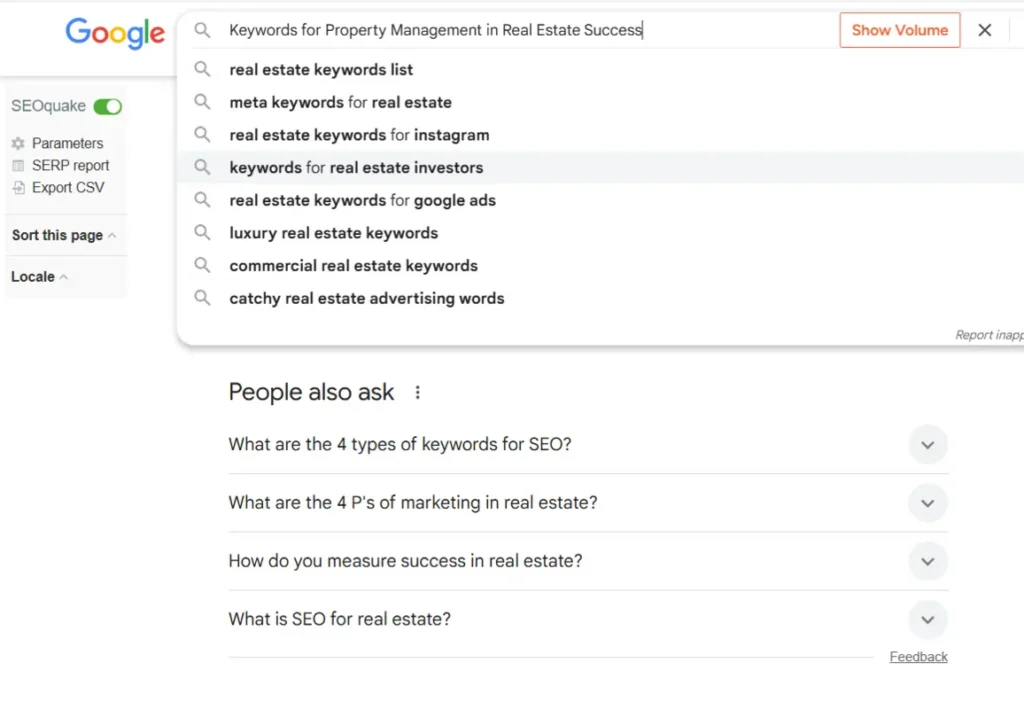
Keeping Your SEO Knowledge Updated with Current Trends
Search engine algorithms change constantly. What worked last year might not work today. To stay effective, you need to stay informed.
- Follow reputable industry blogs and news websites.
- Join online communities and forums where professionals discuss updates.
- Actionable Tip: Dedicate 20 minutes each week to reading about the latest SEO trends. This small habit will keep your strategies fresh and aligned with how search engines like Google operate.
Turning Keyword Data into a Content Plan
Collecting keywords is pointless without a plan. Organize your discovered terms by topic and user intent. Group them into clusters to create a pillar page and supporting content structure. This topic clustering approach signals to search engines that your website is a comprehensive authority on a subject, which can boost your rankings for all related terms.
Finding Your Main Business Rivals
Start by making a list of three to five agents or teams you often see online or on yard signs. These are your local competitors. Visit their websites and follow their social media profiles.
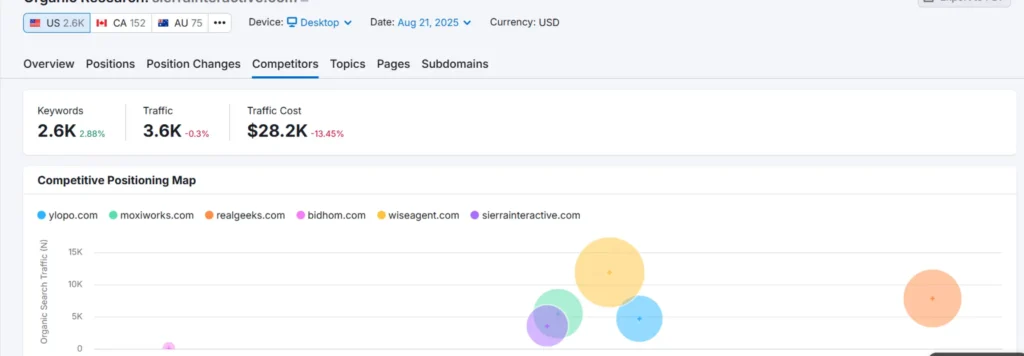
What to Look For on Their Websites
| Tool | Best For | Key Consideration |
|---|---|---|
| Semrush | Comprehensive analysis, competitor research, and local SEO. | Very powerful but can be expensive for beginners. |
| Ahrefs | Analyzing backlink profiles and in-depth keyword data. | Excellent for understanding what makes competitors rank. |
| Moz Pro | User-friendly interface, great for tracking rankings and site audits. | Often praised for its helpful community and educational resources. |
| Ubersuggest | A more affordable entry-point with solid keyword and idea suggestion features. | A good starting tool before investing in more advanced platforms. |
Using a Keyword Tool for Insights
Special tools can show you the exact words people use to find a website online. For example, you can use a tool like Ubersuggest. By typing in a competitor’s website address, you can discover:
- The main search terms that bring visitors to their site.
- How much web traffic they get each month.
- Which specific pages on their site are the most popular.
This information is like a map showing you what people are searching for in your town.
Find Great Keywords for Your Website
Finding the right terms is the first step to being seen online. Think about what your ideal visitor would type into a search bar. These are your seed keywords.
Start by listing words that are central to your business, like “real estate agent” or “apartments for rent.” Then, use free tools to expand this list and discover what people are actually searching for. The goal is to connect your content with real user intent.
Using Free Chrome Extensions for Quick Keyword Analysis
You don’t always need expensive software to get started. Several free browser add-ons can provide instant insights while you browse.
- Keyword Surfer: This tool shows estimated search volumes and related keyword suggestions directly on the Google search results page.

- SEO Minion: A versatile extension that helps with various tasks, including checking keyword density on a page and analyzing header tags.
- Pro Tip: Install one of these and simply search on Google. You’ll immediately see valuable data without any extra effort.
Pros vs. Cons of Watching Your Competitors
| The Good (Pros) | The Not-So-Good (Cons) |
|---|
| Saves time by showing what’s already popular. | Easy to copy too closely and lose originality. |
| Helps you notice new trends in the market. | Can distract you from your own ideas. |
| Lets you avoid mistakes and follow smart strategies. | Their approach may not match your skills or clients. |
Building Website Authority with Quality Backlinks
Google sees other websites linking to yours as a vote of confidence. It shows your site is a trustworthy source of information.
- Partner with Local Businesses: A local moving company might link to your “Moving to Seattle” guide.
- Create Shareable Resources: Design a useful checklist, like “Your Ultimate Moving Checklist,” that other sites will want to share and link to.
Technical SEO: Making Your Website Fast and Easy to Use
If your website is slow or broken, both people and Google will leave. Technical SEO is about the behind-the-scenes health of your site.
| Good Technical Health | Poor Technical Health |
|---|---|
| Pages load in under 3 seconds | Website is slow to load |
| Website works well on mobile phones | Site is difficult to use on a phone |
| No broken links or error pages | Links lead to “Page Not Found” errors |
Using SEO Tools to Track Your Progress and Gain Insights
You can’t improve what you don’t measure. Free tools like Google Search Console and Google Analytics show you how people find and use your site.
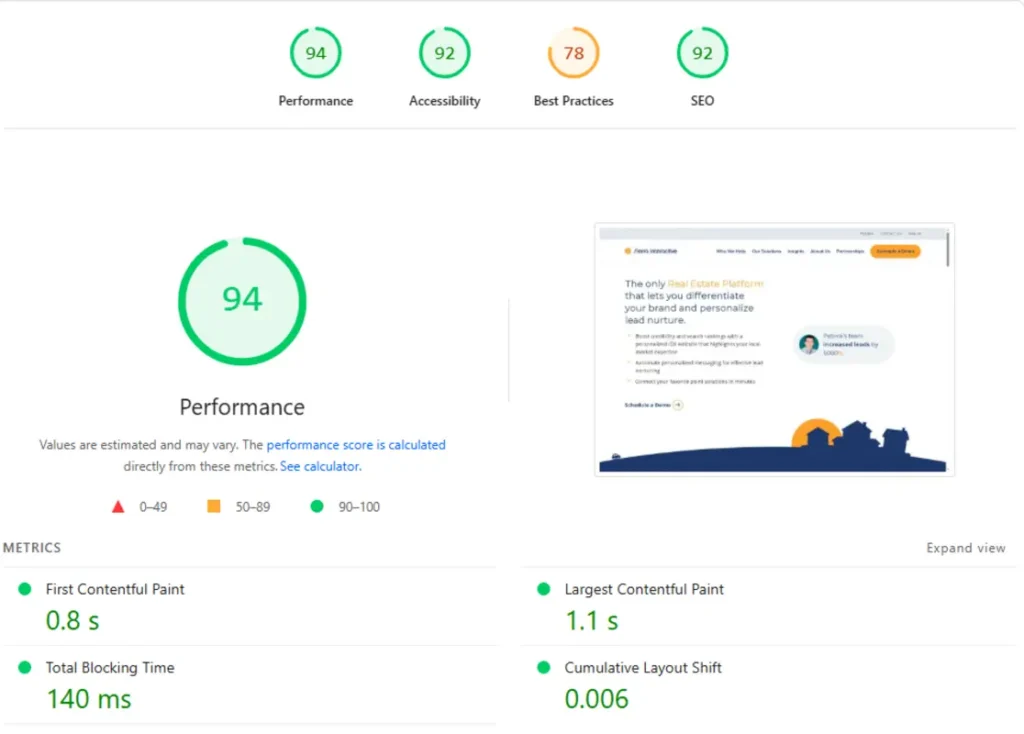
- See Your Top Keywords: Discover which search terms are already bringing people to your website.
- Find and Fix Errors: Get alerts for technical problems like broken links.
- Understand Your Visitors: Learn what pages they like and how long they stay.
If this feels overwhelming, consider seeking expert SEO support from a professional who can handle the complex parts for you.
Biggest Keyword Mistakes and How to Fix Them
Ignoring Long-Tail Keywords
Long-tail keywords are longer, more specific phrases. They have less competition and attract better clients. For example, instead of just “property management,” target phrases like “rental property management services in Austin, TX” or “how to screen a tenant effectively.”
Overlooking User Search Intent
Understanding why someone is searching is crucial. This is called “user intent.” Are they looking to learn, find a specific website, or hire someone? If someone searches “average property management fee,” they are researching.
A search for “hire property manager Phoenix” means they want to buy. Your page content must match this intent.
Over-Optimizing and Keyword Stuffing
In the past, repeating a keyword many times could boost rankings. Today, search engines are smarter. They punish pages that overuse keywords, a practice called “keyword stuffing.” Your writing should sound natural to a person, not a robot. Instead of forcing a phrase, use synonyms and related terms.
For instance, instead of repeating “property management,” you can use “rental manager,” “tenant services,” or “landlord support.” This natural language processing approach makes your content stronger and more readable.
Benefits of SEO in Real Estate & Property Management
In today’s digital world, your online presence is your new storefront. For real estate professionals, appearing when potential clients search is no longer a luxury it’s essential. A strong search engine optimization strategy is the most powerful tool to ensure your properties and services are found by the right people at the perfect moment.
Effective Techniques for Generating Real Estate Leads
A well-optimized website acts as a 24/7 lead generation machine. By offering valuable resources, you can capture visitor information and build a list of potential clients.
- Offer a Free Home Valuation Tool: This attracts homeowners curious about their property’s worth, identifying potential future sellers.
- Create a Dedicated Rental Application Portal: Make the process easy for renters, and you’ll collect their details efficiently.
- Promote a First-Time Homebuyer’s E-book: Gate this valuable guide behind a simple email form to generate leads from novice buyers.
Reducing Vacancy Rates Through Digital Marketing
A vacant property is a direct loss of income. Strategic online promotion can significantly shorten the time a rental property sits empty.
By using targeted paid advertising on platforms like Google and social media, for exampe instagram ,facebook,printerest you can put your listing in front of a highly specific audience filtered by location, income, interests, and even life events.
This means your ad for a one-bedroom apartment is seen by people actively searching for one in that exact area, leading to faster leases and happier property owners.
Building Long-Term Property Investment Value
SEO isn’t just for quick sales; it’s about building a reputable brand that stands the test of time. A website that consistently provides valuable information and ranks highly for important searches establishes you as the local area expert.
faqs:
What are the 4 types of keywords for SEO?
In search engine optimization, keywords are typically categorized by length and user intent:
- Short-Tail Keywords: These are very brief, often just one or two words (e.g., “Boston real estate”). They have high search volume but are extremely competitive and often have vague intent.
- Long-Tail Keywords: These are longer, more specific phrases (e.g., “3 bedroom condo for sale in South Boston”). They have lower search volume but are less competitive and much more likely to convert into a client because they show clear intent.
- Informational Keywords: People use these to find an answer or learn something (e.g., “how to stage a home for a quick sale”).
- Commercial Intent Keywords: These indicate a user is researching or preparing to make a purchase (e.g., “best real estate agents near me” or “new construction homes reviews”).
What are the 4 P’s of marketing in real estate?
This classic marketing framework applies perfectly to property:
- Product: This is the property itself—its location, size, features, condition, and any unique selling points.
- Price: This involves setting a competitive listing price based on a comparative market analysis, not just emotion. It also includes your commission or service fees if you are the agent.
- Place: This refers to where you market the property. This includes online portals (Zillow, Realtor.com), social media, real estate networks, and traditional methods like yard signs.
- Promotion: These are the specific activities you do to market the property, such as professional photography, virtual tours, open houses, and targeted digital advertising campaigns.
How do you measure success in real estate?
Success is measured by a combination of financial metrics and client satisfaction:
- Key Performance Indicators (KPIs): This includes closed sales volume, number of transactions, average days a listing is on the market, and the final sale-to-list price ratio.
- Market Share: How many listings and sales you complete compared to other agents in your area.
- Client Feedback: Positive testimonials, reviews, and repeat business or referrals are powerful indicators of long-term success.
- Online Performance: For a modern business, measuring website traffic, lead generation form submissions, and social media engagement is also crucial.
What is SEO for real estate?
Search Engine Optimization for real estate is the practice of improving your website and online presence to attract more qualified visitors from search engines like Google. The goal is to appear in search results when people look for homes, real estate agents, or local market advice.
What are the best keywords for real estate agents to target?
The best terms are a mix of high-intent local phrases. Think about what your ideal client would search for: “homes for sale in [Neighborhood],”
Should we target high-volume or low-competition keywords for my real estate website?
A balanced strategy is best. Use lower-competition, long-tail phrases to get initial traffic and wins (e.g., “is [Subdivision] a good neighborhood?”).
How many keywords should I use on each real estate webpage?
There is no magic number. Focus on one primary keyword that the page is centrally about. Then, naturally use a handful of closely related terms and synonyms throughout the content.comprehensive.



